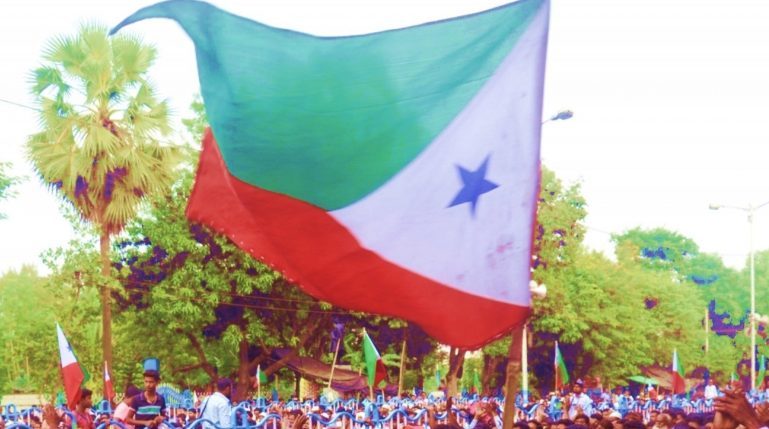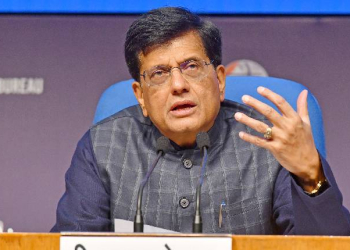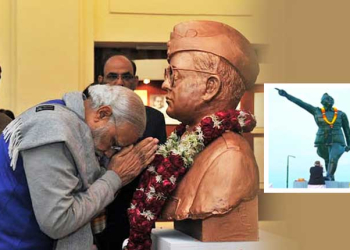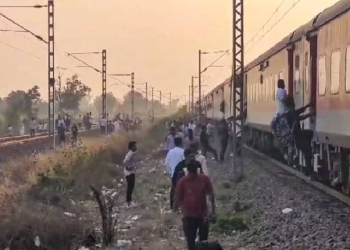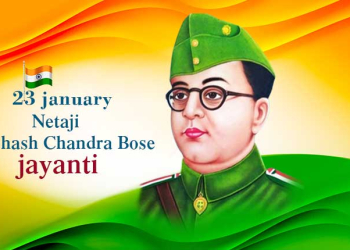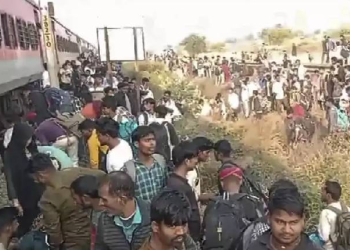New Delhi,: The Ministry of Home Affairs on September 28 declared the Popular Front of India (PFI) and its eight affiliates “unlawful association” for five years under the Unlawful Activities (Prevention) Act, 1967. Upon the insistence of the governments of UP, Karnataka and Gujarat, this ban came shortly after the NIA, ED and various state police forces carried out a coordinated nationwide crackdown on the PFI.
Terming it a “witch-hunt” against student activists involved in anti-CAA protests, PFI chairman O.M.A Salam said that the probe against the organisation was “politically motivated”.
In 2019, the Uttar Pradesh government sought a ban on the PFI for its alleged involvement in anti-CAA protests in parts of the state.
The Central government’s ban on the PFI was imposed on several counts centred on terror including terror funding and training. Consequently, hundreds of its leaders have been apprehended in the past few days.
The specific reasons for the Union government to ban the outfit pertains to the PFI’s efforts to radicalise vulnerable persons of a community, its links to other terrorist organisations including the ISIS, and more significantly, posing a threat to India’s internal security by way of involvement in major violent incidents that point at the PFI.
Having been under the scanner for over a decade, the PFI joins the list of the likes of LeT, JeM, SIMI and al Qaeda.
Within hours of the ban, PFI announced its dissolution. Its Kerala state general secretary, Abdul Sattar, explained: “As law abiding citizens of our great country, the organisation accepts the decision.”
Although proscribed only now, the PFI was often seen as an extremist group.
The origins and ideology of the PFI
Created in 2006 after the merger of three Muslim organisations of South India — National Democratic Front in Kerala, Karnataka Forum for Dignity, and Manitha Neethi Pasarai in Tamil Nadu — on February 16, 2007, the formation of the PFI was formally announced at a rally during the so-called ‘Empower India Conference’ in Bengaluru.
In 2009, the Social Democratic Party of India (SDPI) evolved out of the PFI, with the stated intent of “advancement and uniform development of all the citizenry including Muslims, Dalits, Backward Classes and Adivasis,” and to “share power fairly among all the citizens.” The PFI is the main provider of ground workers for the SDPI’s political activities.
While the PFI has never contested an election, it engaged in social and religious work among Muslims along the lines of right-wing groups such as the RSS and the VHP.
Emerging after the ban on SIMI, the PFI presented itself as an organisation to support the rights of the minorities and the marginalised sections of society. It often targeted the alleged anti-people policies of mainstream parties, although these parties (Congress, BJP, and JD-S in Karnataka) have accused each other of drawing support from the PFI to consolidate Muslim votes during elections.
The PFI does not maintain records of its members, making it difficult for law enforcement agencies to pin crimes on the organisation after making arrests.
Chopping off the hand of a professor
In 2015, the first conviction happened when a special court found 13 PFI members guilty in the case of Prof T.J. Joseph whose right hand was chopped off for allegedly insulting Prophet Mohammed in a question paper. This case was transferred from the Kerala Police to the NIA by the UPA government.
In 2017, the NIA, in a detailed report to the Union Ministry of Home Affairs, had sought a ban claiming that the PFI was a “threat to national security” and was using outfits like Sathya Sarani, a religious education centre in Kerala’s Malappuram, to carry out “forced conversions.”
On July 5, 2020, 30 kg of gold worth Rs 15 crore was seized at Thiruvananthapuram airport from diplomatic baggage addressed to the UAE consulate-general in the state capital. After the case was handed over to the NIA, sources alleged that the smuggled gold could have been used by the PFI to fund “anti-national” activities.
SDPI’s growing presence in Karnataka
Until 2013, the SDPI contested only local elections, and won seats in 21 civic constituencies across the state. From this year, the SDPI fielded candidates in elections to the Karnataka Assembly and Parliament.
In 2013, after being voted to power in Karnataka, the Congress government dropped cases against SDPI and PFI members who were accused of involvement in communal disturbances during the previous BJP government’s tenure. A total of 176 cases filed against 1,600 PFI activists from 2008 to 2013 by the BJP government, were dropped by the Congress government.
The SDPI contested the 2014 and 2019 Lok Sabha elections from the Dakshina Kannada seat, but won just 1 per cent and 3 per cent votes respectively.
By 2018, it won 121 local body seats. In 2021, it captured three local councils in Udupi district.
In December 2019, two people were killed in police firing when anti-CAA protests in Mangaluru turned violent. Later, Mangaluru Police claimed to have found crucial evidence suggesting that groups affiliated to the PFI and the SDPI had shared “provocative messages” prior to the violence.
While the Karnataka government did seek a ban on the PFI before the Union government announced it, Kerala does not figure in the brief list of state governments that sought the ban.
PFI extends its footprint
While its influence is most prominent in Kerala, where it has been accused repeatedly of murder, rioting, intimidation, and having links with terror outfits, the PFI has expanded its base and has acquired a presence in 23 states, according to NIA.
In 2012, then Kerala Chief Minister Oommen Chandy had said to the High Court that PFI is “nothing but a resurrection of the banned outfit SIMI”.
The Students’ Islamic Movement of India (SIMI) was formed in UP’s Aligarh in April 1977. The stated mission of SIMI is to “liberate India” by converting it to an Islamic entity.
In 2014, the Chandy government filed another affidavit saying that PFI workers were behind 27 communally motivated murders (mostly of RSS and CPM workers), and 86 cases of attempt to murder and 106 cases of communal offences in the state.
The Kerala government told the High Court that PFI had a surreptitious agenda of “Islamisation of society by promoting conversion, communalisation of issues with a view to benefit Islam, recruitment, and maintenance of a committed indoctrinated Muslim youth for undertaking actions including selective elimination of persons, who in their perception are enemies of Islam”.
This affidavit was in response to a petition filed by ‘Thejas’, the PFI’s mouthpiece in Kerala, which had challenged the refusal of government advertisements since March 2013.
In April 2022, the Kerala BJP announced a campaign against “growing instances” of “religious terrorism” in the state. “In the last six years, 24 BJP-RSS workers have been killed in Kerala, seven of them by the Popular Front of India,” BJP state president K. Surendran said on April 18.
On April 15, 2022, PFI’s Palakkad district president and a member of the SDPI, 44-year-old A. Subair, was hacked to death outside a mosque. The district leadership of the BJP denied the PFI’s allegation that the murder was perpetrated by RSS-BJP cadres.
The police, however, confirmed that a vehicle abandoned by Subair’s killers was registered in the name of a RSS worker who was killed the previous year, allegedly by PFI/SDPI members.
Shortly after Subair’s murder, a 45-year-old RSS worker was hacked to death by five men who stormed into his two-wheeler shop in a BJP stronghold area in Palakkad.
To prevent further violence, the administration imposed prohibitory orders in the area until April 20, and deployed some 300 police personnel in Palakkad.
Afterword
It remains to be seen how effective such a ban would be in eliminating elements of communal disturbances and violence, given that the underlying cause for these anti-national elements to thrive are, as yet, unaddressed.
(IANS)



